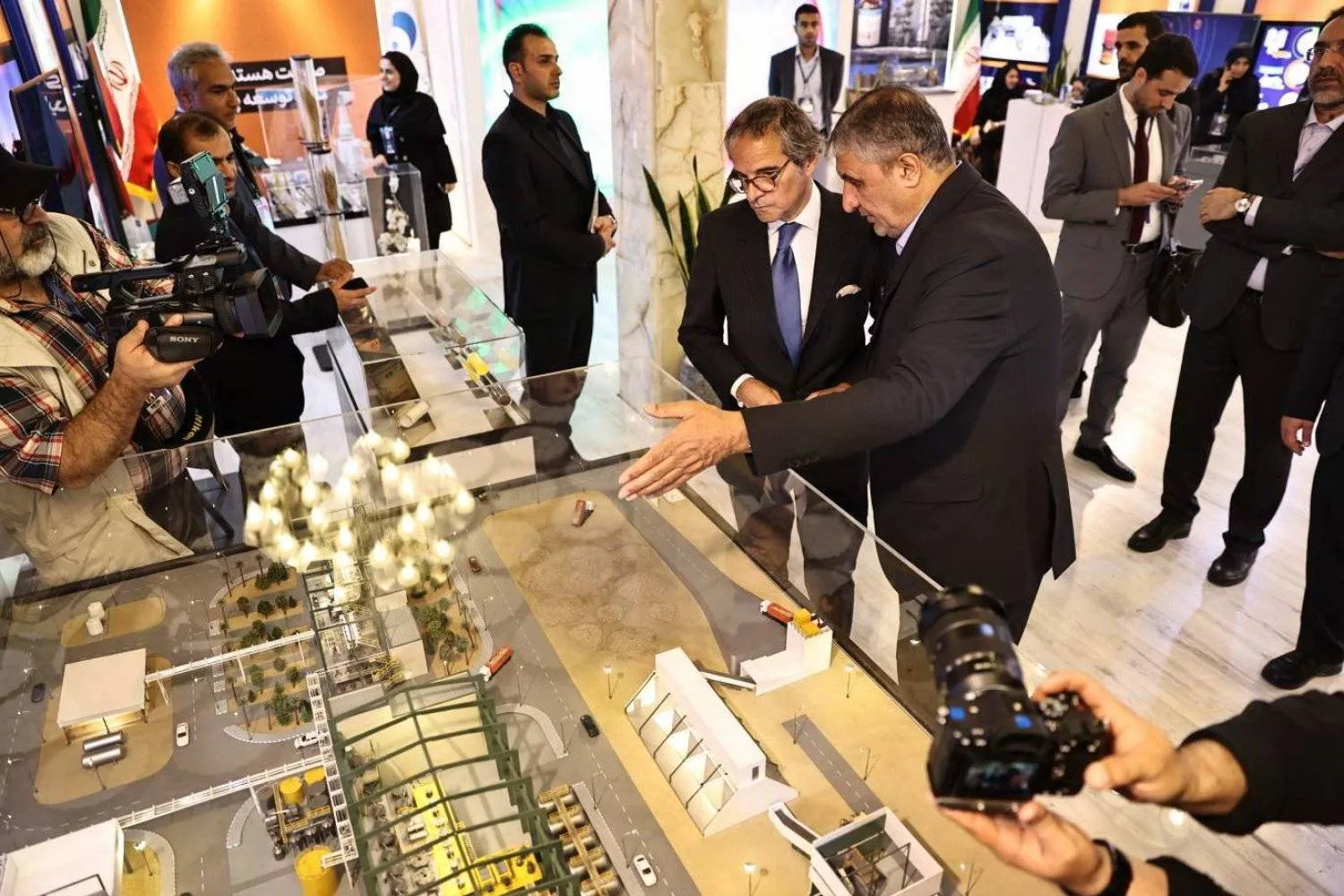Director General of the International Atomic Energy Agency (IAEA) Rafael Grossi expressed on Monday concern about reaching an impasse over safeguard issues with Iran linked to the Non-Proliferation Treaty, but described his contacts with the new government, headed by President Masoud Pezeshkian, as “constructive and open.”
Several long-standing issues are dogging relations between Iran and the IAEA, including Tehran's barring of uranium-enrichment experts on the inspection team and its failure for years to explain uranium traces found at undeclared sites.
In his statement to the 68th IAEA General Conference in Vienna, Grossi explained that the UN agency have continued to report to the IAEA Board of Governors on both Iran’s NPT Safeguards Agreement and verification and monitoring undertaken in light of UN Security Council resolution 2231.
“I remain actively engaged and the IAEA remains ready to play its indispensable part as the matter evolves. It is critical that the Agency is able to provide credible assurances that Iran’s nuclear program is exclusively peaceful,” the IAEA chief stressed.
With regard to the NPT Safeguards Agreement, Grossi found that it is a matter of concern.
“Significant safeguards issues remain outstanding after a number of years and that we appear to have reached an impasse,” he said, adding that Iran’s implementation of the activities set out in the joint statement between him and Iran in March last year has stopped.
However, Grossi noted that his correspondence so far with the new government has been “constructive and open”, hoping to visit the country soon.
Head of the Atomic Energy Organization of Iran (AEOI) Mohammad Eslami told the conference that his country is committed to boosting international cooperation in the nuclear arena.
He defended Iran’s rights regarding the cancellation of the appointment of the Agency's inspectors, under the Comprehensive Safeguard Agreement.
Grossi held talks with Eslami in Vienna on Sunday ahead of the conference.
This comes a week after Grossi delivered similar statements at the quarterly meeting of the agency's 35-nation Board of Governors in Vienna.
IAEA board resolutions ordering Iran to cooperate urgently with the investigation into the uranium traces and calling on it to reverse its barring of inspectors have brought little change, and quarterly IAEA reports seen by Reuters on Aug. 29 showed no progress.
Iran responded to the latest resolution in June by announcing an expansion of its enrichment capacity, installing more centrifuges, machines that enrich uranium, at its Natanz and Fordow sites.
Meanwhile, the United States and the UK are increasingly concerned that Russia is sharing classified information and technologies with Iran that could bring Tehran closer to building nuclear weapons, Bloomberg reported on Monday.
Unnamed Western officials familiar with the matter said that the Kremlin has stepped up cooperation with Iran in recent months in connection with its ambitions to acquire nuclear weapons.
These developments were discussed by US and UK officials in Washington last week when British Prime Minister Keir Starmer met with President Joe Biden at the White House.
They described the developments as worrying and highlighted the deepening of military ties between Russia and Iran.
The White House National Security Council spokesperson said on Saturday the Biden administration remains deeply concerned about Iran's nuclear activities. Biden has made it clear that the US is prepared to use all its capabilities to prevent any nuclear escalation by Iran.
Iran has stepped up nuclear work since 2019, after then-US President Donald Trump abandoned an agreement reached under his predecessor Barack Obama under which Iran agreed to restrictions on its nuclear activities in return for the lifting of international sanctions.
Western diplomats say there are plans for talks on fresh restrictions should Kamala Harris win the US presidential election in November.









